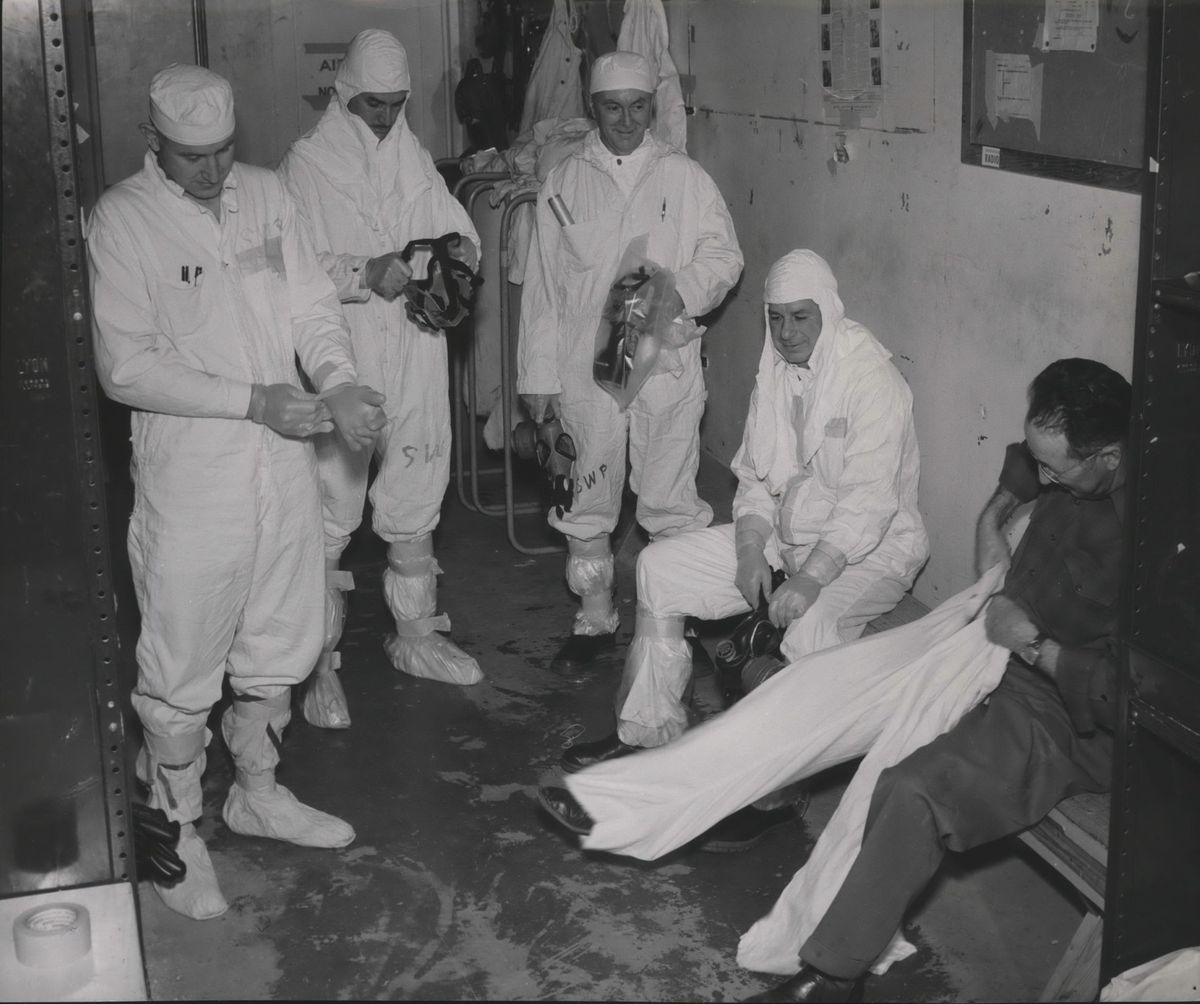WSU Tri-Cities explores legacy of Hanford, Manhattan Project

Washington State University Tri-Cities will consider the legacy of the Manhattan Project in a conference this week that includes local and international speakers, tours and a well-known author introducing his latest documentary.
“After Hiroshima and Nagasaki, the world would never be, could never be, the same again,” said Michael Mays, director of the WSU Tri-Cities Hanford History Project.
“Yet only now, nearly 75 years later, are we really beginning to understand the cataclysmic impacts.”
The Richland conferenceMarch 15-18, 2017, will provide historical reconsideration of the key roles, decisions, outcomes and effects of the creation of the atomic bomb during World War II.
The Hanford nuclear reservation was central to changing the world, creating plutonium for the first atomic explosion and then the bomb dropped on Nagasaki, Japan. The site continued to produce plutonium through the Cold War.
The conference, called “Legacies of the Manhattan Project – Reflections on 75 Years of a Nuclear World,” will tackle related topics ranging from environmental legacies to radiation health effects to popular culture’s take the WWII project to create an atomic bomb.
Author Eric Schlosser, best known for “Fast Food Nation” will speak before a screening of the latest documentary he produced, “Command and Control.” It covers an explosion at the Titan II missile complex in Arkansas in 1980 and contemplates the dilemmas of nuclear weapons.
Una Gilmartin, a historical preservationist who worked on the restoration of the Washington Monument, is another keynote speaker. Her latest project is Hanford’s White Bluffs Bank, part of the new Manhattan Project National Historical Park.
WSU Tri-Cities plans to compile papers submitted for the conference into a book to mark the 75th anniversary of the start of the Manhattan Project.
Participants can attend the entire conference or selected activities, including a free walking tour.
Admission to the entire conference costs $250 or $150 for students, seniors or spouses of those attending. A Friday night banquet costs extra. Most of the conference will be at the Richland Red Lion.
A Wednesday evening reception will focus on preserving Hanford’s past. Cost to attend just the reception is $20.
A free tour will be offered at 3 p.m. Wednesday along Richland’s Urban Greenbelt Trail, with photos used to show how Richland looked during the Manhattan Project and the early days of the Cold War. The tour covers about 3 miles and leaves from the lobby of the Richland Red Lion.
Participants can choose to attend talks on Thursday or Friday for $125 each day if they do not buy admission to the entire conference. Talks will cover an update on the new national park, the Manhattan Project in performing arts, politics driven by the Manhattan Project, African Americans at Hanford during WWII and many other topics.
Gilmartin is the keynote speaker Thursday, and Schlosser is the keynote speaker Friday. Kathleen Flenniken, the former Washington state poet laureate, will speak at the Friday evening banquet. Cost just for the banquet is $70, with a discount for those attending the full conference.
Saturday events, for those without all-conference admission, will cost $40 to attend.
They include morning lectures and an afternoon tour to both B Reactor and the almost-completed work on the White Bluffs Bank, which was seized along with other businesses and homes in 1943 to make way for the secret plutonium production site. Those not attending the conference may take the tour for free if seats are available.
The conference concludes with a 6 p.m. Saturday reception and showing of “Command and Control” at the Reach Museum in Richland. A donation of $20 will be requested from those not purchasing conference admission.